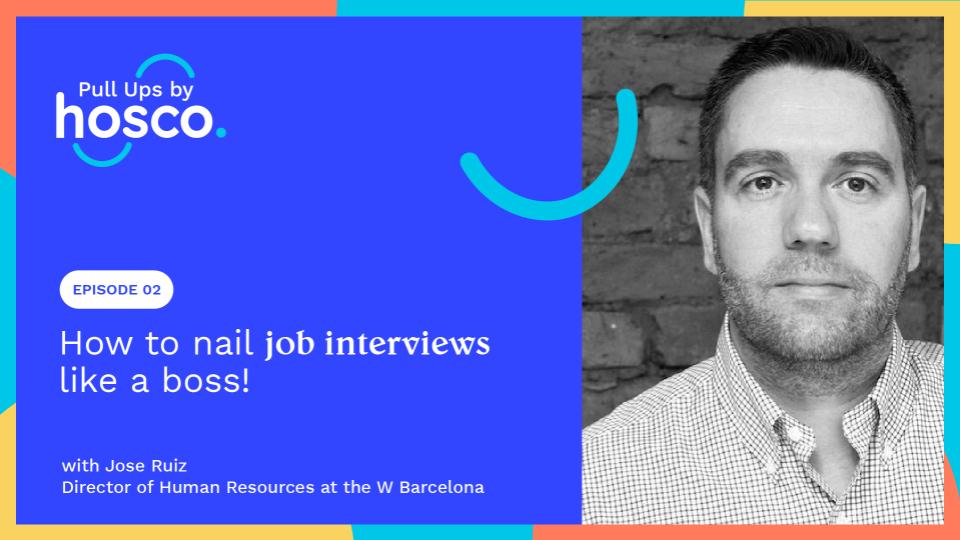CV? Check! Cover letter? Check! Interview prep…… So. The big day has dawned. You’re off to your interview hoping to emerge with an offer that will kickstart or propel your hospitality career forward.
Acing an interview doesn’t come down to luck, the alignment of the stars, or memorising the A-Z of hotel keywords. But there are a few top tips that can help you walk out whistling, not whimpering.
We spoke with José Ruiz, HR Director of The W Barcelona and seasoned guru of the selection process. With 26 years of hospitality experience in London and thousands of interviews under his belt, José’s been around the Monopoly board and beyond more than once.
He shared some universal truths about how to get in shape for your career and nail an interview like a boss.
So, throw on your gym clothes and let’s get this workout started!
Disclaimer: Hosco and its affiliates do NOT recommend you wear gym gear to your hospitality interview, nor attempt to perform star-jumps into the waiting area.
How many interviews should you expect?
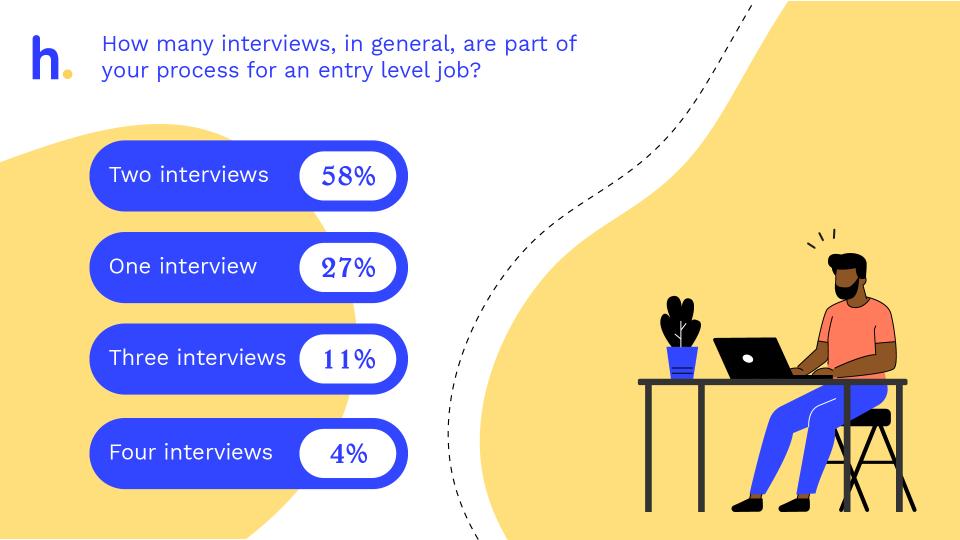
We flipped that question to our audience of HR directors, managers and talent acquisition specialists. More than half (55%) said two interviews. For entry level positions, 58% delivered the same verdict. And the fun doesn’t stop there, according to José.
“From a hotel perspective, it’s very common to have a minimum of two interviews for every role you’re going from, entry level or not.”
When it comes to planning your approach and strategy, José advises us “not to get obsessed with telling two different stories.” HR managers see hundreds, sometimes thousands of candidates. Passion and authenticity will captivate your interviewer’s interest, so tell a great story – but keep it real, and don’t lie on your CV or in the interview room, as doing so will inevitably backfire.
Top tip #1: Build rapport. Tell an engaging (true) story.
Preparation, preparation, preparation
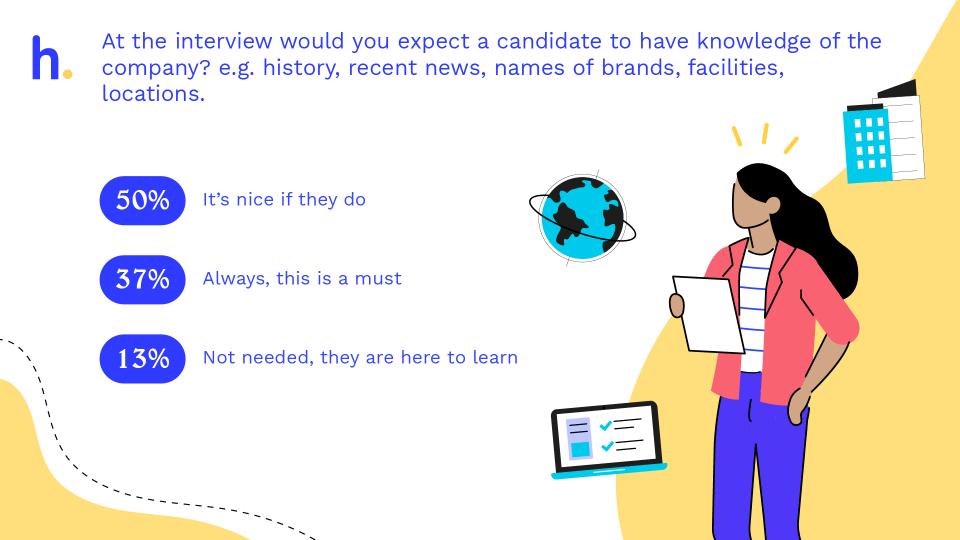
Do your homework on the company, the role and the person who will be interviewing you – and be sure to know where you’re going! We asked our audience if they’d expect a candidate to know about the company. Half said it’s nice if they do and over a third (37%) believe it’s essential.
Bottom line: interviewers will suss out immediately whether a candidate really wants to work with them or just wants any job. You won’t be expected to know a company inside out but it’s important to know the role you’re applying for and to ask the right questions.
“Don’t ask questions to look clever, but if something’s important to you, ask. Don’t be afraid to ask about salaries or vacations, or anything else you want to know.” José assures us.
Top tip #2: Get to grips with the basics.
Post-interview protocol
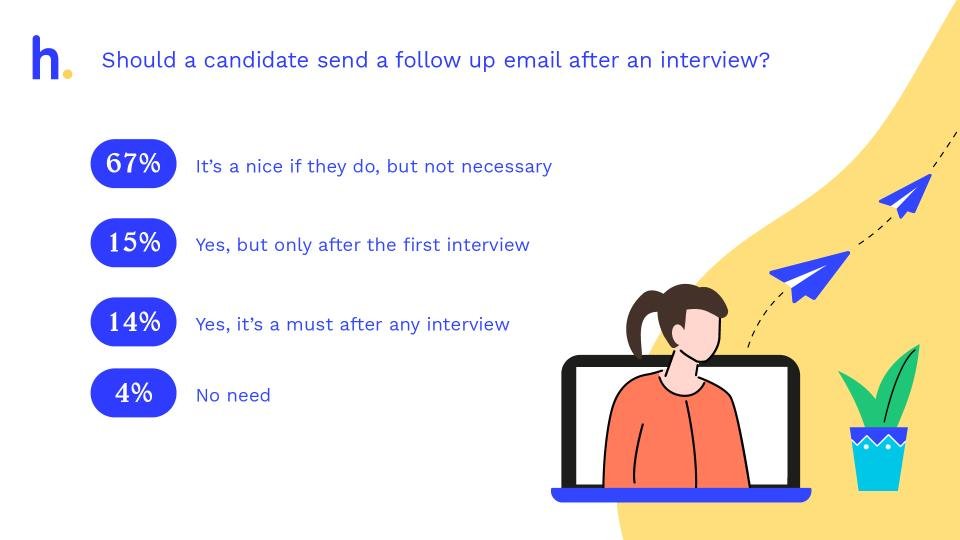
Should you send a follow-up email after an interview? A whopping 67% of our audience said it’s nice but not necessary. For José, if an interview has gone well, a follow-up email is the icing on the cake – as long as a candidate doesn’t just copy-paste a standard thank you note.
“Use your follow-up email as a continuation of the rapport and relationship building,” he advises us. Refer back to a point raised or a moment of rapport to jog the interviewer’s memory.
By the same token, if you feel that you left out a vital piece of info or fluffed a question, a follow-up email can be a great place to clarify and show that you’ve reflected on it.
Top tip #3: Keep follow-up personal, relevant and engaging.
Be remembered for the right reasons
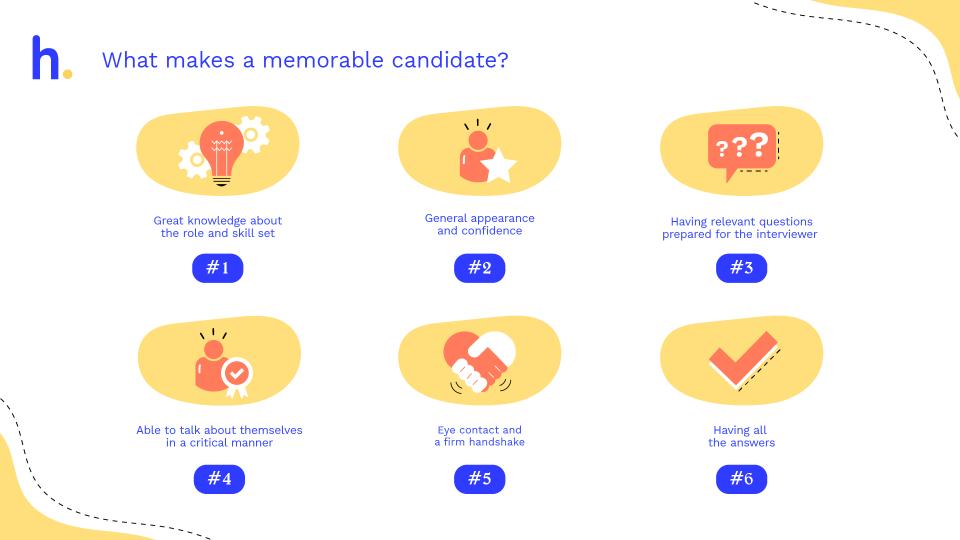
What makes a candidate memorable? Our audience rate great knowledge of the role and skill set as the best buy. According to José, there is no such thing as a perfect candidate. “The most important thing is self-awareness, know what you’re good at.”
He also assures us that coming clean on your areas for improvement is far better than pretending to have all the answers, “Show your vulnerability but demonstrate what you are doing to improve. Offer a solution.”
Top tip #4 Play to your strengths
What not to do
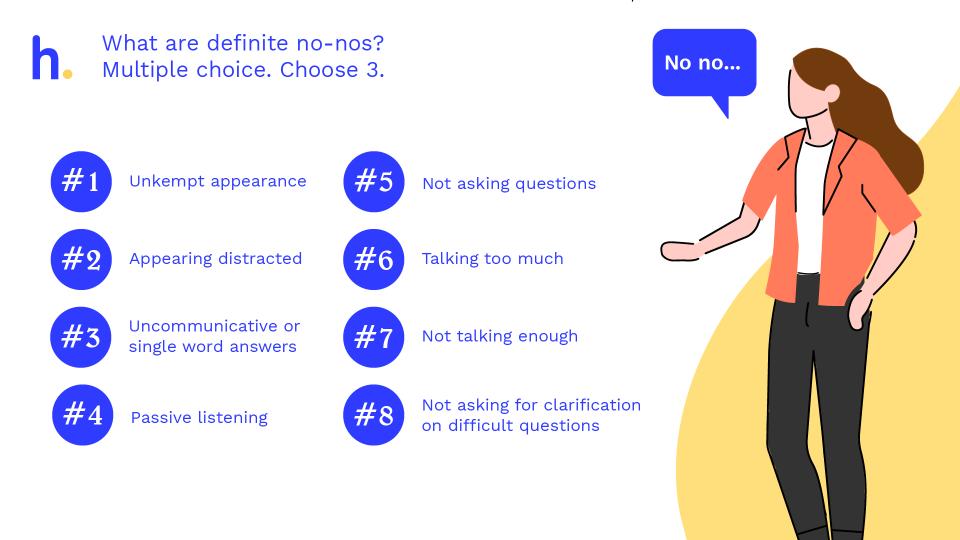
We asked our audience to name definite no-nos if you want to nail an interview and not put a nail in your career coffin. Top of the list was an unkempt appearance, something José agrees wholeheartedly with, “If I see you in my lobby and you’re not appropriately dressed, it’s going to take a lot of hard work to turn me around.”
Number 8, according to our audience, is not asking for clarifications on difficult questions. Interestingly, as an HR Director, José feels that this could move up the ranking, and even form part of your pre-interview prep:
“For me, I need to know your nationality before I schedule an interview, so that I know you have permission to work legally. Many candidates still leave that off their CV.”
Of course, You can pre-empt and prepare the questions you might be asked. José also recommends rehearsing at home or with friends, and even recording yourself. “Interviewing is a skill like any other, and you can learn it through practice… better to cringe before an interview than after it!”
Top tip #5 Make your first impression count
Make your interview an unforgettable experience
Job interviews are challenging, but they are also a great opportunity to get to know your role and yourself better. Nailing an interview like a boss means being real, being prepared and being engaged, or, in the words of José “Remember that hard work and passion transcend anything.”
Hospitality is ultimately about building human and emotional connections, as he concludes. “I don’t mind what a candidate is passionate about, it can be totally different to what I’m passionate about, but I always ask myself, would I go for a beer with this person?”
Cheers to that!
Well, that’s it for this session of Hosco Pull-Ups. Now you should be able to move forward and interview with confidence, regardless of your level of experience.
And check out the full video of our second session of Hosco Pull-Ups below to get more insights on how to put across the best version of yourself in any hospitality interview!

